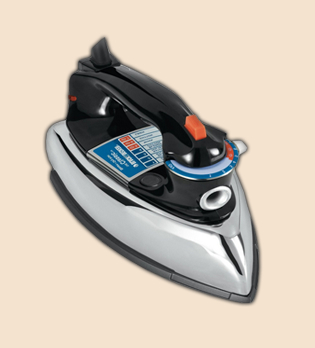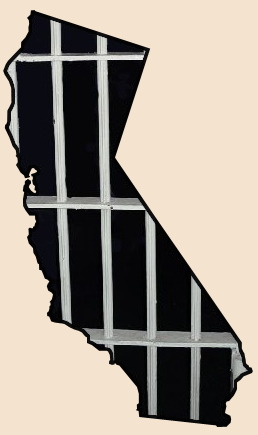Eligibility for a second chance begins with being taken seriously.
Crass
• adjective: lacking in discrimination and sensibility, blundering, asinine
 Okay, here it is: the mentally ill in California prisons are far more likely to be subjected to harsher treatment and longer sentencing than other inmates. That’s a criminal lack of discrimination and sensibility. Of all the inmates who occupy facilities up and down the state, roughly 30% are mentally ill, making the California Department of Corrections a de facto mental health treatment provider. Now there’s your blundering and asinine.
Okay, here it is: the mentally ill in California prisons are far more likely to be subjected to harsher treatment and longer sentencing than other inmates. That’s a criminal lack of discrimination and sensibility. Of all the inmates who occupy facilities up and down the state, roughly 30% are mentally ill, making the California Department of Corrections a de facto mental health treatment provider. Now there’s your blundering and asinine.
According to the Stanford Law School’s Three Strikes Project, “The average sentence imposed on defendants suffering from mental illness is longer than the average sentence imposed on defendants who do not have mental health diagnosis but who committed the same crime.”
Shane Bauer of Mother Jones claims there are ten times more mentally ill people behind bars than in state hospitals, and many of those inmates have severe illnesses like schizophrenia. Furthermore, solitary confinement can make it harder or even impossible for the untreated mentally ill to re-enter society. Amy Fettig, senior staff counsel for the ACLU National Prison Project says “it’s a risk that can’t be condoned. They come out such ruined human beings. It has essentially harmed them in such a substantial way they can’t ever return to the community or society.”
 The passage of California’s Prop 47 was important to me personally because of the smiley Nicaraguan we called “Hey,” to whom my book, Where Excuses Go to Die, is dedicated. Hey’s chapter is one I read a lot at book signings and other events, because even without shocking statistics it powerfully demonstrates how narrowly the public has been trained to recognize what prison and prisoners look like. Where Excuses Go to Die exists to defy that recognition.
The passage of California’s Prop 47 was important to me personally because of the smiley Nicaraguan we called “Hey,” to whom my book, Where Excuses Go to Die, is dedicated. Hey’s chapter is one I read a lot at book signings and other events, because even without shocking statistics it powerfully demonstrates how narrowly the public has been trained to recognize what prison and prisoners look like. Where Excuses Go to Die exists to defy that recognition.
 Hey had Tourette’s, and I wonder if you’ve ever imagined what life must be like behind bars for someone whose movements and expressions are involuntary. I don’t just mean in terms of survival. I mean the desperate panic to be taken seriously in housing units already crowded with screamers, schizophrenics, and stupids. ‘Cause if custody personnel, and by extension facility administrators, don’t take you seriously, they won’t lift a finger to offer you rehabilitative services. That need to be taken seriously – to literally be viewed as eligible for a second chance – is so dire and isolating for someone with even a mild mental illness like Tourette’s that I’m compelled to shake the public by the collar and make sure people hear Hey’s story.
Hey had Tourette’s, and I wonder if you’ve ever imagined what life must be like behind bars for someone whose movements and expressions are involuntary. I don’t just mean in terms of survival. I mean the desperate panic to be taken seriously in housing units already crowded with screamers, schizophrenics, and stupids. ‘Cause if custody personnel, and by extension facility administrators, don’t take you seriously, they won’t lift a finger to offer you rehabilitative services. That need to be taken seriously – to literally be viewed as eligible for a second chance – is so dire and isolating for someone with even a mild mental illness like Tourette’s that I’m compelled to shake the public by the collar and make sure people hear Hey’s story.
 You see, when a staff member is cranky at the end of his or her shift, your personal and medical needs are at the mercy of their mood. Will they pass your concern on to the next shift officer? They might remember to do so, sure. But that likelihood decreases significantly when you’re explaining your needs calmly and respectfully over the jabbering moron in the cell next to you who’s threatening the officer at your door.
You see, when a staff member is cranky at the end of his or her shift, your personal and medical needs are at the mercy of their mood. Will they pass your concern on to the next shift officer? They might remember to do so, sure. But that likelihood decreases significantly when you’re explaining your needs calmly and respectfully over the jabbering moron in the cell next to you who’s threatening the officer at your door.
 An irrefutable fact of life for inmates is that correctional officers are trained to detach. They are trained to be aloof and indifferent, not only for their own mental health, but for the safety and security of the institution. Add in bravado; add in the influence of inmate politics, such as hatred for suspected snitches and sex offenders; and finally include the fact that we all operate on perception, and what do you have? An environment where an individual afflicted with something as little as a facial tic can be written off. So what do you suppose happens to someone who can’t stop yelling “HEY!” in a guard’s face? What second chances are there for those who aren’t taken seriously?
An irrefutable fact of life for inmates is that correctional officers are trained to detach. They are trained to be aloof and indifferent, not only for their own mental health, but for the safety and security of the institution. Add in bravado; add in the influence of inmate politics, such as hatred for suspected snitches and sex offenders; and finally include the fact that we all operate on perception, and what do you have? An environment where an individual afflicted with something as little as a facial tic can be written off. So what do you suppose happens to someone who can’t stop yelling “HEY!” in a guard’s face? What second chances are there for those who aren’t taken seriously?
Besides, prison is a kaleidoscope of provisions and variables. Around every corner are factors that undermine the intended purpose of all things regulatory, rehabilitative, and sensible.
 Let’s say you do manage to get your name on a list. Great. Now what? List, lists, lists – prisons have more lists than bars! As a former inmate clerk to an Associate Warden and her secretary, I’ve personally altered lists of all sorts. I did it every day, putting the highest bidder at the top. And I’ve been asked, ordered, and bribed to add and remove names from lists by Lieutenants, Sergeants, and suits on down.
Let’s say you do manage to get your name on a list. Great. Now what? List, lists, lists – prisons have more lists than bars! As a former inmate clerk to an Associate Warden and her secretary, I’ve personally altered lists of all sorts. I did it every day, putting the highest bidder at the top. And I’ve been asked, ordered, and bribed to add and remove names from lists by Lieutenants, Sergeants, and suits on down.
And even then… Is your name finally at the top of that list? Good for you. A fight on the Yard got bloody, so your facility just got put on lockdown for a month. Just like that, there you are, back at your old cell door, pleading with a housing unit officer to honor the appointment you finally got –– to take you seriously. I’m quite sure I needn’t break down the different shades of being taken seriously that exist in a world of criminal offenders…
My point is, the whole concept of second chances in the criminal courts and prison system is one thing; what happens inside can be something else entirely, for staff and inmates alike. It’s crass.
 What’s ironic is that other states don’t take California seriously as a model of “corrections and rehabilitation, not even New York, where the average stay for an inmate at Rikers Island is 42 days while mentally ill inmates average 215. Hard-ass Texas, of all states, is viewed as more reform-minded than The Golden State.
What’s ironic is that other states don’t take California seriously as a model of “corrections and rehabilitation, not even New York, where the average stay for an inmate at Rikers Island is 42 days while mentally ill inmates average 215. Hard-ass Texas, of all states, is viewed as more reform-minded than The Golden State.
But California voters did something good this week. They didn’t just vote to save the state hundreds of millions of dollars by reclassifying certain felonies as misdemeanors, such as fraud, petty theft, and some drug possession; they voted for a proposition that guarantees more money for successful mental health programs.
According to California’s Legislative Analyst, Prop 47 requires that annual savings to the state from the measure’s passage be transferred to the new Safe Neighborhoods and Schools Fund. The new fund gives 25% of that to reduce K-12 truancy and dropouts (both early indicators of future incarceration), 10% to victim services grants, and 65% to mental health and drug abuse treatment services designed to keep individuals out of prisons and jails.
Just this year, Colorado became the second state (after New York) to ban solitary confinement for the mentally ill. California isn’t quite there yet, but given Prop 47’s bi-partisan passage and an April federal court order to improve care and treatment of the mentally ill in isolation, we’ve taken a small step toward reversing the animal-in-a-cage caricature of incarceration that makes it easy to remain unaware of circumstances like Hey’s.
